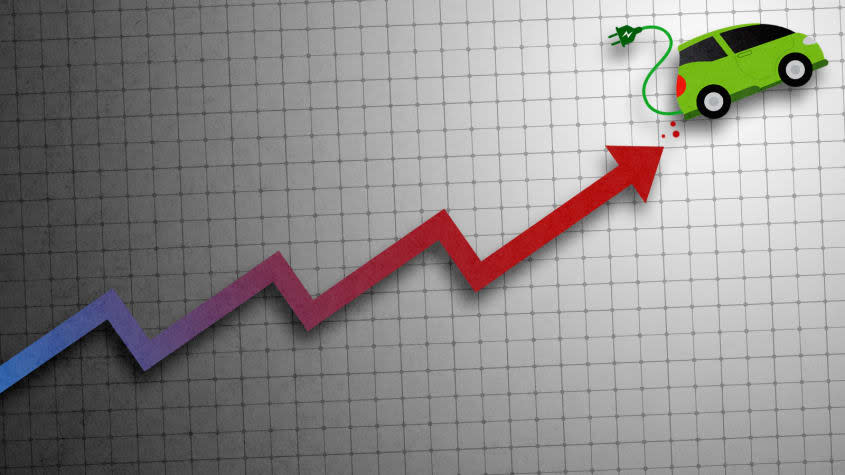Are electric vehicles really better?

As energy prices soar and states like California and New York advance mandates requiring the sale of zero-emissions cars by 2035, you might be wondering: Are electric vehicles truly better? Here's everything you need to know:
Are electric vehicles actually better for the environment?
The short answer is yes ... but many factors go into that.
In general, electric vehicles (EVs) produce fewer emissions than gas vehicles, seeing as they don't have a tailpipe; however, depending on where the electricity used to power the vehicle comes from, an EV's carbon footprint can still vary. It is important to remember that just like gasoline, electricity is largely sourced from fossil fuels, even if work is being done to change that. For instance, as of February 2022, over 60 percent of the U.S.' electricity generation came from fossil fuels, including coal and natural gas, and only about 20 percent came from renewables, according to the Energy Information Administration (EIA).
The average U.S. power grid also typically pulls energy from an array of sources, including both fossil fuels and renewables, meaning EVs overall almost always have a lower carbon footprint than their gas-powered counterparts, The New York Times explains. That said, the proportion of energy coming from each source varies by region. So, as one engineering professor told the Times, charging an electric vehicle in an area where there are nearby coal plants (thus causing said plants to burn more) could potentially lead to more air pollution than a gas-powered vehicle.
Though EVs are also "more emissions-intensive to make" (thanks to their batteries), their engines are nonetheless more efficient overall, the Times adds. One study found that, in the U.S., lifecycle emissions for EVs are 60 to 80 percent lower than gas vehicles, Newsweek reports.
Are electric vehicles better for your wallet?
High levels of inflation worldwide have pushed gas and electricity prices higher than they've been in years. And even as gas prices begin to slowly plateau, many families are still being squeezed by their electricity bill, NPR reports. The main reason for the price hike is the increase in the cost of natural gas, which accounts for about 40 percent of America's electricity generation. Prices have risen by 15.8 percent in the past year largely due to increased demand following heatwaves around the world, as well as Russia's invasion of Ukraine. Russia is a large exporter of natural gas, especially for Europe, which is now experiencing an energy crisis.
Not only does California suffer from excessive energy demand, but it also has some of the highest energy prices in the country. Over the summer, the state experienced record-high temperatures, which strained power grids and caused wildfires and blackouts. In order to keep lights and air conditioning on, California was forced to extend the life of some of its natural gas facilities, hindering its ambitious climate goals, Politico reports.
During this time, California also asked plug-in vehicle owners to limit when they charged their cars as a way of conserving energy. (Despite this, California still moved to approve a ban on new gas vehicle sales starting in 2035, a move also adopted by N.Y.)
EV usage has been impacted by climate issues in other states, too. Back in July, for instance, Tesla asked Texas residents to refrain from charging their vehicles during peak times to contend with a devastating heatwave. The state also last year experienced severe power grid failures due to record-low temperatures that froze its natural gas infrastructure.
Even with such power grid problems, however, data has shown that it is almost always cheaper to own an EV than a gas vehicle, mainly because EV engines are more efficient compared to internal-combustion engines. It simply takes less energy to go further in an electric car. Further, even in the states where electricity prices are the highest in the country, like Massachusetts and California, the price of an EV is still less, per CNBC.
So, overall — are EVs the better option?
Research has found that fully electric vehicles tend to reduce carbon emissions for city drivers and increase carbon emissions for highway drivers in rural counties, Newsweek reports. For distance driving, hybrid vehicles tend to be a better option, since they can stretch the time between plugging in and/or filling up the car's tank. It's better to stray from fully gas vehicles, as those still do have the highest average carbon footprint.
While EVs are, on average, better than gas vehicles from both an environmental and economic standpoint, climate change will actually have a negative impact on both types of cars. The world is currently stuck in a feedback loop where the worse climate change gets, the more energy is needed ... thus requiring more fossil fuels, increasing emissions, and further worsening climate change.
In reality, the best option is to move away from fossil fuels altogether — or better yet, invest in public transport and walkable cities. EVs would be drastically greener if more energy came from renewables, the cost of which have continued to fall over the last two years and have even dropped below the cheapest fossil fuel options in some instances.
Ideally, there should be systems in place that allow residents in all areas — metropolitan and rural — to ditch their keys. Building walkable cities, for instance, where every necessity is within walking distance, would help reduce emissions, promote better health, foster a sense of community, and bolster local businesses. Having a solid public transport system would also reduce the number of cars on the road, which would in turn decrease total energy and emissions expended. The Bipartisan Infrastructure Law includes $108 billion to support federal public transportation programs.
Ultimately, the question of whether to purchase an EV obscures the real question at hand: How can we make transportation in general more economical and eco-friendly?
You may also like
5 cartoons about Alex Jones' billion-dollar penalty
Holiday season airfare could be among most expensive ever, report says

